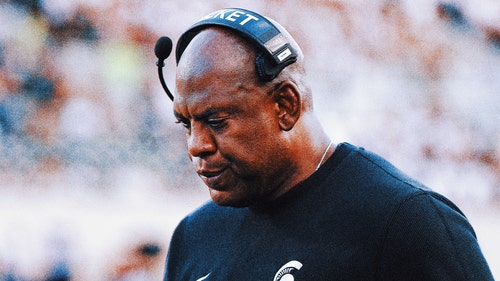Horse racing groups introduce competing safety legislation they hope will replace HISA
WASHINGTON (AP) — New legislation introduced in Congress on Tuesday would dismantle the year-old national authority in charge of regulating safety and medication in horse racing and replace it with an organization backers say would allow for the safe treatment of horses and address concerns about doping.
The Racehorse Health and Safety Act, proposed by the North American Association of Racetrack Veterinarians and several horsemen's associations, would include a national umbrella of rules for states to follow but give individual racing commissions more authority to enforce them. The bill was introduced by Louisiana Republican Rep. Clay Higgins.
“While the federal government may have had good intentions in passing (the Horseracing Integrity and Safety Act), in practice it ended up obstructing best practices in the horse business,” Higgins said. "I will not sit by and allow horses to be harmed while government crushes the families that have built their lives around the horse racing industry.”
The plan would essentially move the oversight of the sport back to states, creating a system with a board chosen by racing commissioners — closer to what existed before the Horseracing Integrity and Safety Authority was established. Critics say HISA goes too far with arbitrary medication rules and creating a Racehorse Health and Safety Organization would be a better way of regulating an industry that in recent years has largely acknowledged the need for reform.
HISA CEO Lisa Lazarus in a phone interview with The Associated Press said it was an unfortunate development for the industry as horse racing tries to survive.
“Everyone knows that HISA is fully operational now: It’s here to stay,” Lazarus said. “At a time when everyone in the industry outside of the (National Horsemen’s Benevolent and Protective Association) is sort of opening themselves up to anything possible to work towards reducing equine injuries, it’s sad and disappointing to see them just essentially try to throw grenades and put up roadblocks when we should really be coming together as an industry.”
Tom Rooney, president and CEO of the National Thoroughbred Racing Association, in a statement sent to the AP called it a “desperate attempt by detractors to repeal HISA, a law that is working to make the sport of thoroughbred racing safer and more transparent.” He added the NTRA will continue to support HISA.
Eric Hamelback, CEO of the NHBPA, said the new law “takes into account horsemen’s input (and) veterinary science (and) allows for horses to be given proper care in the best interest of equine health and welfare.”
HISA was the result of concerns over doping in the sport of kings and the new rules replaced a patchwork system of standards in the 38 U.S. racing states that can vary by track and location. It was signed into law late in 2020 by then-President Donald Trump and began regulating safety measures last year and medication and anti-doping rules in May. Safety has been at the forefront for months after high-profile horse deaths at Churchill Downs and Saratoga Race Course.
“Horse racing’s future is really in peril, and if we don’t come together and work hard to reduce equine injuries and make the sport safer, we may not have a sport in the future,” Lazarus said.
HISA faced a series of legal challenges before going into place. Texas remains opposed and has for a year not been able to simulcast its races out of state as a result.
Hamelback and other stakeholders agree there was change needed from the status quo but have criticized HISA and the Horseracing Integrity and Welfare Unit — its independent enforcement agency — for banning or limiting the withdrawal times for substances that they say have little or no impact on performance.
Russell Williams, president of the board of the U.S. Trotting Association that governs harness racing of standardbreds, said one faction of the industry favors no medication in horse racing — “basically have hay, oats and water."
"The purpose of that is to prove to the public that there’s no doping going on," Williams said. "The other side of that debate is science, sports medicine.”
Williams said the new proposal was put together by racetrack veterinarians before being reviewed by officials in thoroughbred, standardbred and quarter horse racing.
Lazarus said the new legislation represents a return to life before HISA.
“The system they’re proposing is just the old system,” she said. “It’s a state-by-state voluntary compact. The whole reason why HISA is here is because the voluntary compacts never worked. You never had anyone agreeing. You only had a few states that would agree, and because it was voluntary, it never had any teeth. And that state-by-state patchwork just doesn’t work.”
___
AP sports: https://apnews.com/hub/sports and https://twitter.com/AP_Sports







.jpg?downsize=*:400)


























































.jpg?downsize=*:400)




















































.jpg?downsize=*:400)
















